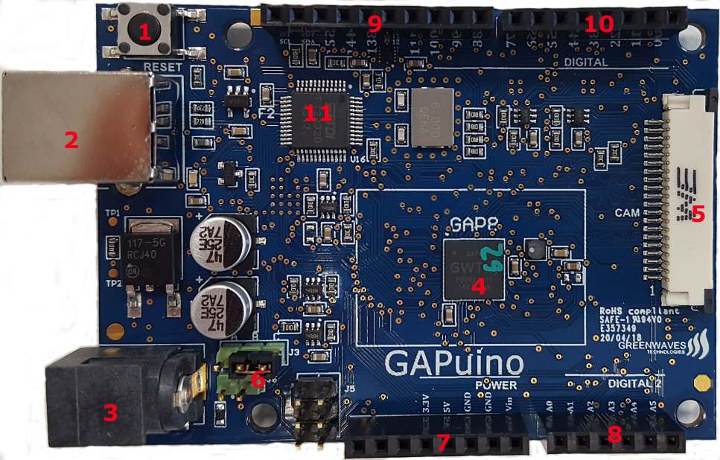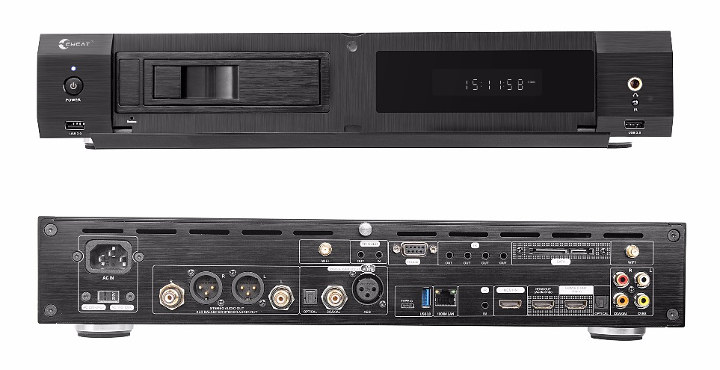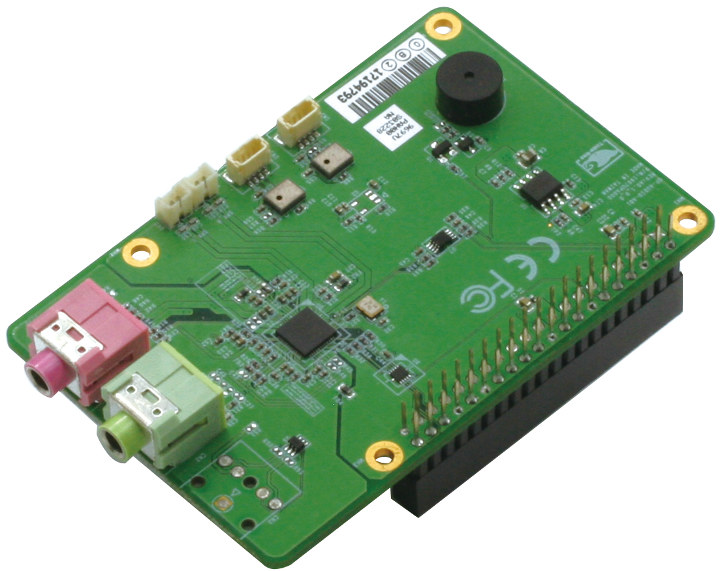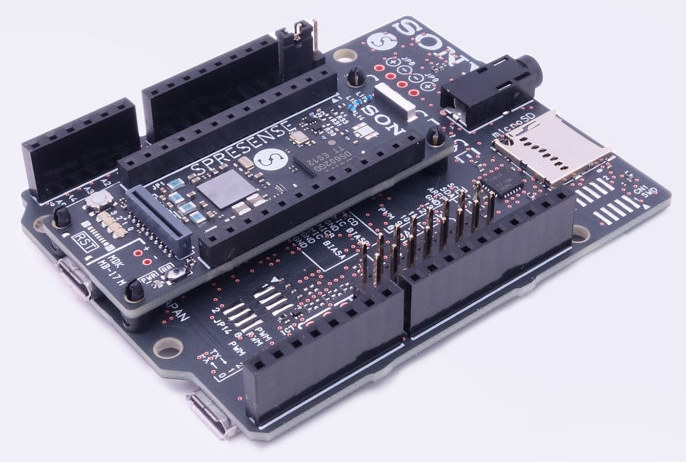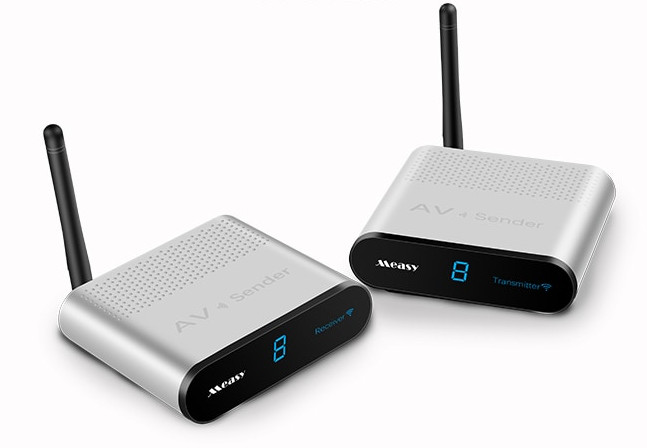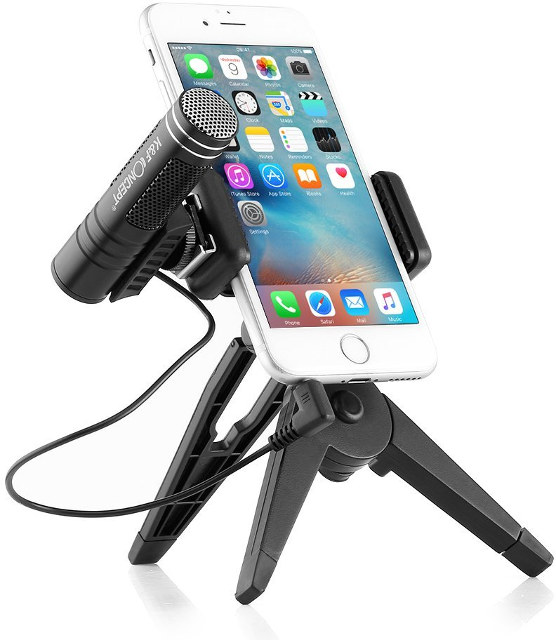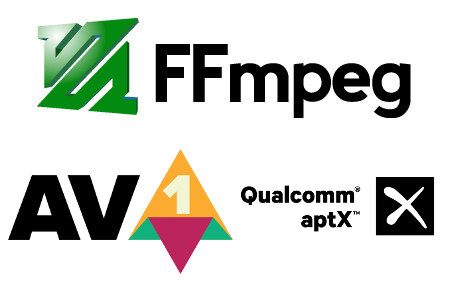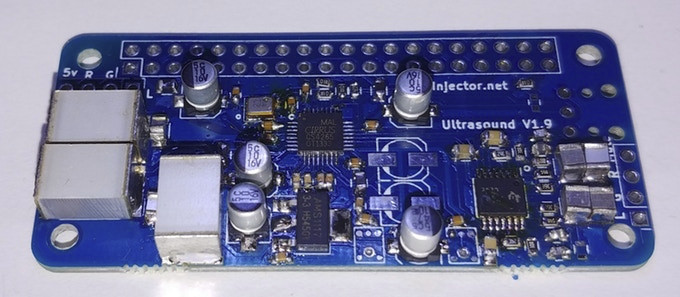GreenWaves GAP8 is a low power RISC-V “MCU class” processor with eight compute cores optimized for artificial intelligence applications, and its main selling point is the ability to do tasks like computer vision or audio processing at very low power, even good enough to run on batteries. When we first covered GAP8 RISC-V processor at the beginning of the year, the company also mentioned a development kit comprised of GAPDUINO Arduino compatible board, a sensor board, and a QVGA camera module to experiment with the solution. The board and development kit are now easier to purchase as the devkit is sold on SeeedStudio for $229. GAPuino board specifications: SoC – GAP8 IoT Application Processor with 8x RISC-V compute cores, 1x RISC-V fabric controller core delivering up to 200 MOPS at 1mW and >8 GOPS at a few tens of mW Memory / Storage – HyperBus combo DRAM/Flash with 512 Mbit […]
Meet EWEAT R11, the $1,200 High-End 4K Media Player
A few months ago, Zidoo released two high-end 4K media players based on Realtek RTD1296DD processor with Zidoo X20 going for around $500, and Zidoo X20 Pro for about $865. Those are quite expensive with dual hard drive support, large metal case, XLR connectors, and high-end audio chips. EWEAT has upped the ante with their R11 model, also based on Realtek RTD1295DD SoC instead, and going for about $1,200 on Aliexpress, and also listed on Amazon US but with no price at the time of writing. [Update: GeekBuying has it for $699.99 shipped]. So let’s see what it has to offer. EWEAT R11 specifications: SoC – Realtek RTD1295DD quad core Cortex A53 processor with ARM Mali-T820 MP3 GPU System Memory – 2 GB DDR4 Storage – 16 GB eMMC flash, 1x SATA 3.0 bay for 3.5″ drives, external SATA port; FAT32, NTFS, EXT3, EXT4, and HFS supported on SATA drives […]
Three Add-on Boards for UP Board and UP Squared – UP-AUDIO HAT, UP-CAMERA HAT, UP-POE HAT
AAEON has announced three add-on boards for their Intel based UP board (Cherry Trail) and UP Squared board (Apollo Lake): UP-AUDIO HAT – Features external ports for a microphone and speakers/headphones UP-CAMERA HAT – Comes with two FPC/FFC connectors for 2M security camera UP-POE HAT – Adds WAN and LAN Gigabit Ethernet ports and PoE support UP-AUDIO HAT AAEON’s UP-Audio HAT currently only works with UP board, and features the following: Audio Codec – Realtek ALC5672 3.5mm Audio Jacks – 1x Line out, 1x MIC Headers – 2x speaker Built-in Components – 2x digital microphones, 1x buzzer Connects to board via 40-pin GPIO female header Dimensions – 85 mm x 56 mm The board is supported in Windows 10, Android 6, and Ubuntu 16.04. UP-CAMERA HAT The camera board works with UP Board, UP Squared and UP Core boards. UP-CAMERA HAT specifications & features: 2x MIPI CSI-2/ DSI DPHY Re-timer […]
Sony SPRESENSE Arduino Compatible GNSS + Audio IoT Board To Sell for $50 (in Japan)
Last year, we covered Sony Spritzer, an Arduino compatible with a Sony hexa-core Arm Cortex-M4F micro-controller, a built-in GNSS receiver, and an audio codec. The product page for this product is now gone, but it appears Sony only renamed it to SPRESENSE, made some design modifications, and is ready to launch the main board for 5,500 JPY (~$50), and the extension board for an extra 3,500 JPY ($32) on July 31, 2018. Sony SPRESENSE main board (CXD5602PWBMAIN1) specifications: MCU – Sony CXD5602 ARM Cortex-M4F ×6 micro-controller clocked at up to 156 MHz with 1.5MB SRAM Storage – 8MB Flash Memory GNSS – GPS & GLONASS Audio – 3.5mm audio jack Expansion I/Os Digital I/O Pins – GPIO, SPI, I2C, UART, PWM, I2S Analog Pins – 2ch (0.7V range) Camera interface USB – 1x micro USB port for programming and power Power Supply – 5V via micro USB port Dimensions – […]
Measy RCA220 is a $35 Wireless AV Transmitter / Receiver Kit with a 200m Range
There are several ways to send video & audio data over a distance without using long cables, from professional DVB-T transmitters with up to 10km range, to cheaper DIY SDR solutions with a shorter range , and HDMI transmitters leveraging your existing electrical cables. Those all work for different target applications (drones, video signal extender), but cost at least a few hundred dollars. If you just intend to transmit composite video (PAL/NTSC) and audio within a house or building, Measy RCA220 will be a more cost effective solution with a range of up to 200 meters. Measy RCA220 AV transmitter / receiver specifications: Connectivity – 2.4GHz wireless transmission with up to 200m range; built-in antenna, 8x selectable channels Video / Audio Ports Transmitter – RCA composite input, 2x RCA L/R audio input Receiver – RCA composite output, 2x RCA L/R audio output Misc – IR jack, channel selection button, front […]
This Smartphone Tripod with Microphone is Designed for Audio/Video Recording
More and more use cases are being handled by smartphones, and we’ve recently seen smartphone stands helping with specific applications such as keyboard and mouse mobile gaming, or a flexible lazy holder allowing you to carry the phone around hands-free among other things. I’ve now come across another smartphone stand that’s designed for audio recording with a built-in microphone, and that could be useful to video bloggers, or others requiring high(er) quality audio recording on the go. Specifications & key features: Microphone Material – ABS + Aluminum alloy Monomer: Electrets condenser Directivity – Heart-shaped Test voltage: 1.5V Impedance: 220Ω Sensitivity: -39db±3dB (0dB=1V/Pa at 1kHz) S/N: ≥65dB 3.5mm audio jack connector 360 degree tube rotation design for microphone holder Foldable tripod with adjustable clamp for smartphone The accessory works with any phones that comes with a 3.5mm audio jack, or adapter for phones with a USB type C port only. The […]
FFmpeg 4.0 Released with Initial AV1 Support, aptX, etc..
Whenever you are playing videos on a machine running Linux, Android or Windows, chances the software is at least partially using code from FFmpeg, a free software project that produces libraries and programs for handling multimedia data. The developers just outed a new major release FFmpeg 4.0 “Wu” which adds new filters, more hardware features, drops Windows XP and ffserver, implements initial AV1 codec support, aptX, TiVo ty+, and more. FFmpeg 4.0 includes the following libraries version:
|
1 2 3 4 5 6 7 8 |
libavutil 56. 14.100 libavcodec 58. 18.100 libavformat 58. 12.100 libavdevice 58. 3.100 libavfilter 7. 16.100 libswscale 5. 1.100 libswresample 3. 1.100 libpostproc 55. 1.100 |
and some of the main changes include: Bitstream filters for editing metadata in H.264, HEVC and MPEG-2 streams Experimental MagicYUV encoder TiVo ty/ty+ demuxer Intel QSV-accelerated MJPEG encoding & overlay filter native aptX and aptX HD encoder and decoder NVIDIA NVDEC-accelerated H.264, HEVC, MJPEG, MPEG-1/2/4, VC1, VP8/9 hwaccel decoding mcompan & acontrast audio filters OpenCL overlay filter video mix filter video normalize filter audio lv2 wrapper filter VAAPI MJPEG and VP8 decoding […]
Flatmax Studio Audio Injector Ultra Sound Card is Designed for Raspberry Pi Boards (Crowdfunding)
Flatmax Studio has launched several audio cards for Raspberry Pi boards on Kickstarter in recent years, and their latest board is called “Audio Injector Ultra Sound Card”. The board is said to give high fidelity input and output audio @ 192 kHz, is equipped with digital output (S/PDIF) and offers dual microphone capability. An extra balanced HAT – will send and receive balanced stereo input and output – is also available. Specifications: Direct Inputs – Unpopulated Analogue Connectors (stereo RCAs provided) Direct Outputs – Unpopulated Analogue Connectors (stereo RCAs provided), Digital Optical SPDIF (Optical transducer provided) Potentiometer Inputs – Unpopulated Connectors and potentiometer (stereo pot. not provided). Potentiometer Outputs – Unpopulated Connectors and potentiometer (stereo pot. not provided). Microphone – 2x high quality ultrasound (model – SPU0410LR5H) surface mount microphones populated Audio Codec – Cirrus Logic CS4265 stereo codec Sample rate – 192 kHz, 24 bit Jitter control – Low […]


